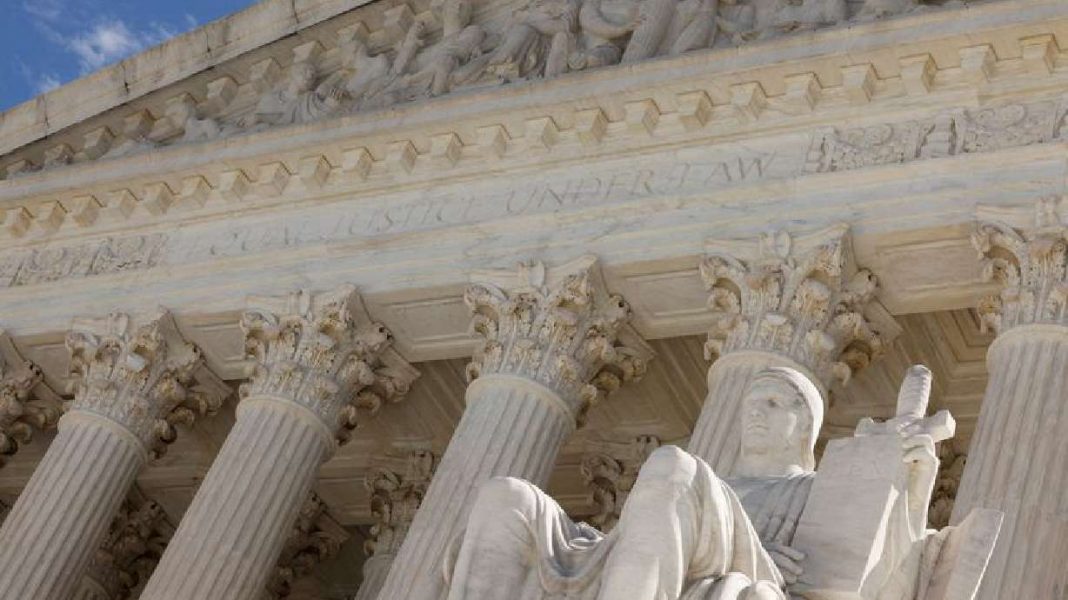WASHINGTON — On Tuesday, the Supreme Court chose not to rule on the issue of excluding jurors based on their religious beliefs. This decision came in response to a Missouri agency’s attempt to overturn a victory by a lesbian employee in a workplace discrimination lawsuit. The case involved the exclusion of three potential jurors who, citing their Christian faith, expressed the belief that homosexuality is sinful.
The state officials had sought a retrial after a lower court rejected their appeal. This followed a jury verdict in favor of the plaintiff, Jean Finney, in her lawsuit against the Missouri Department of Corrections. The state contended that the exclusion of the three individuals, who had voiced their religious opinions, contravened the 14th Amendment’s guarantee of equal protection under the law.
Finney, a lesbian, filed a lawsuit against the Department of Corrections, her employer for many years. She alleged that she had been subjected to a pattern of workplace discrimination and retaliation after she started dating a male colleague’s ex-wife. Finney, who was seeking financial compensation, accused the agency of breaching Missouri’s human rights laws by fostering a hostile work environment and discriminating against her based on her sex.
In 2021, the jury ruled in Finney’s favor, awarding her a total of $275,000 for her claims of sexual discrimination and a hostile work environment.
During the jury selection process, where potential jurors are questioned to uncover any potential bias, Finney’s attorney asked about their religious beliefs. This was done in an attempt to “identify persons with strong feelings on the subject of homosexuality,” according to court documents submitted by Finney’s legal team.
Finney’s lawyers requested that Missouri state Judge Kate Schaefer dismiss the three jurors. They believed that the jurors’ responses to questions about whether homosexuality is a sin indicated a bias against gay individuals.
Judge Schaefer stated that two of the three jurors in question had been “very clear in that they could be absolutely fair and impartial in this case.” However, she agreed to exclude the jurors to “err on the side of caution.”
The judge approved the request despite an objection from Missouri officials. Their attorneys expressed concerns about “getting into the bounds of religious discrimination” during the jury selection process.
Following the state’s appeal, a Missouri appellate court determined that the trial court had acted within the law. The court found that the dismissal of the potential jurors was based on their views on homosexuality — a “central issue in the case” — and not because they were Christians, as Missouri officials had argued. After Missouri’s highest court rejected a subsequent appeal by state officials, they appealed to the Supreme Court.
Missouri officials argued to the justices that equal protection rights, which safeguard potential jurors from being dismissed based on sex or race, should also apply to religion. They added that the U.S. Constitution “ought not to tolerate exclusion on the basis of religion, the very first freedom protected by the Bill of Rights.”
State officials admitted that potential jurors could be excluded if specific religious beliefs, rather than simply the religion they follow, caused them to be biased.
The Supreme Court, which has a 6-3 conservative majority, has recently adopted a broad interpretation of religious interests. This includes a decision last year that allowed an evangelical Christian web design business owner to refuse to provide services for same-sex weddings.
In 2022, the court sided with a public high school football coach who was suspended for refusing to stop leading Christian prayers with players on the field after games.




Bad punctuation and grammar, disagree: The Supreme Court should have made a ruling on this issue to ensure fair and equal treatment under the law.
Agree: The Supreme Court’s decision to not rule on the legality of religious-based juror exclusion leaves room for discrimination and undermines the integrity of the justice system.